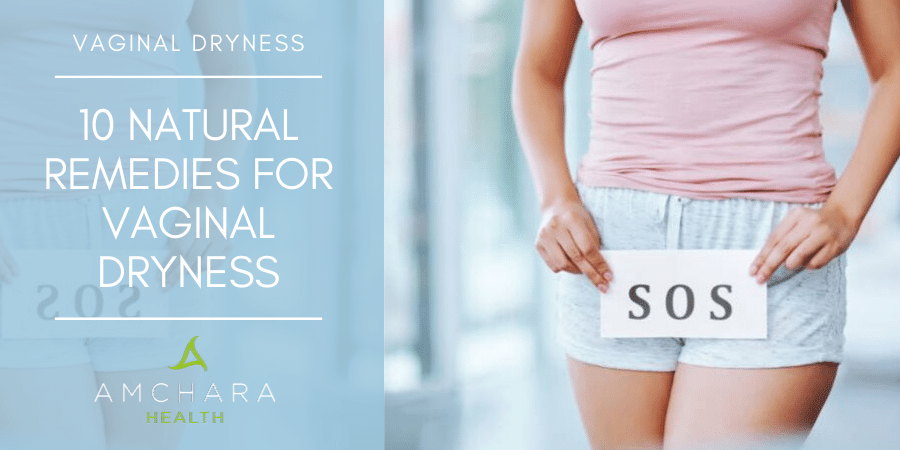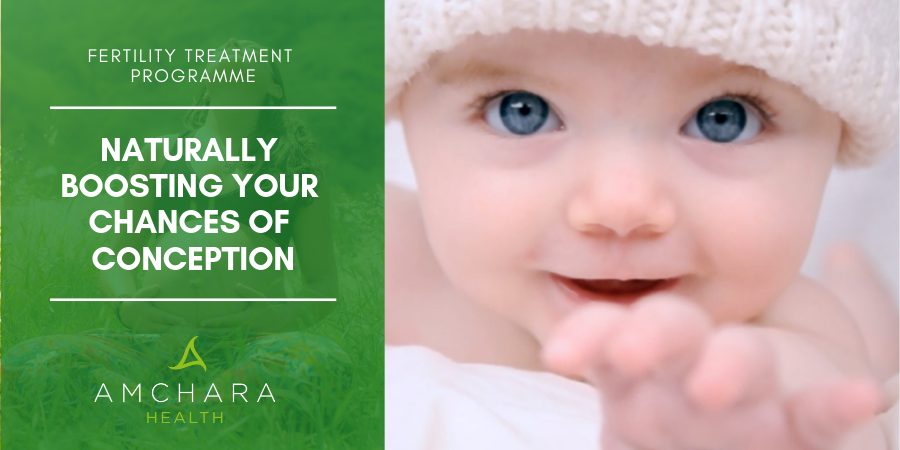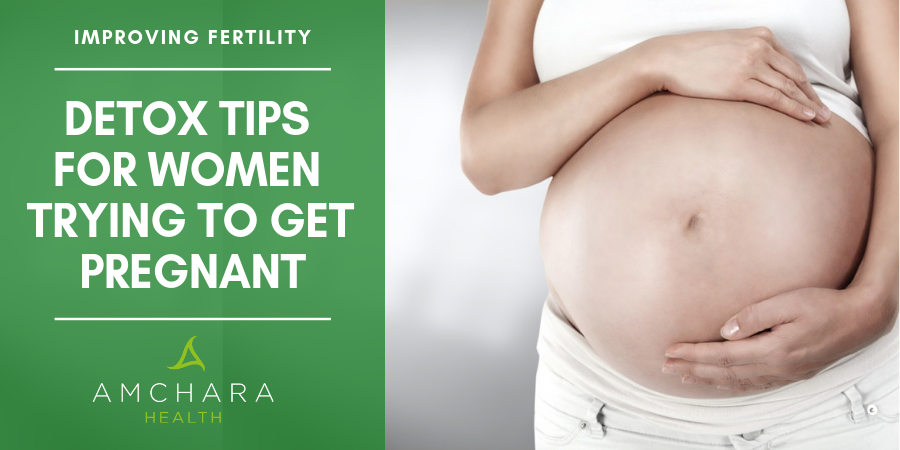For women going through the menopause, vaginal atrophy is the second most common complaint after hot flushes with as many as 75% experiencing this distressing condition.
Vaginal dryness, pain and itching can cause considerable discomfort and may also put the brakes on any intimacy within a relationship.
Tissue changes such as thinning of the vaginal mucous membranes and loss of elasticity in the walls of the vagina can contribute to vaginal dryness and are brought about by reduced oestrogen and androgen levels. These fluctuating hormone levels also affect the mucous membranes of the vulva and urethra.
For some women this can lead to thinning skin, soreness, itching, burning, pain and bleeding, particularly during intercourse. Cystitis is also a common occurrence.
Aside from some very effective vaginal lubricants that are available on the NHS, there are some really good natural remedies that can help to ease the symptoms.
Here are the 10 we think can really make a difference…
1. Vitamin C
Pack your diet with vitamin C rich fruit and vegetables. Vitamin C plays an important role in the formation of collagen, which is essential for strong healthy skin all over the body including the vagina.
Top vitamin C containing fruit and veg include:
- Guava
- Broccoli
- Strawberries
- Kiwi
- Red and green peppers
- Kale
- Brussel sprouts
- Oranges
If increasing your fruit and veg intake is not possible, opt for a highly bioavailable vitamin C supplement. Liposomal supplements are exceptionally well absorbed. (1)
2. Vitamin E
According to research Vitamin E plays a key role in oestrogen stability, improving symptoms of menopause such as vaginal dryness.
Vitamin E helps to maintain blood vessel flexibility, which facilitates blood circulation, thus increasing the metabolism of vaginal tissues and enhancing flexibility and moisture of the vaginal walls.
A review of current literature shows that daily use of vitamin E (100–600 units), either orally or locally, causes an increase in vaginal elasticity and improves dryness and burning due to vaginal atrophy.
Vitamin E can gradually influence tissue recovery and decrease painful intercourse because of its ability to heal wounds resulting from atrophy. As well as stimulating the vaginal mucosa, vitamin E can also help to prevent infections.
Vitamin E oil capsules can be opened, squeezed onto the fingers and directly applied to the skin inside the vagina. The oil also works as a natural lubricant during intercourse.
Many advocates of vitamin E oil suggest inserting a whole capsule into the vagina every night for 6 weeks and then following that just use it when needed.
3. Sea Buckthorn oil
Sea buckthorn oil is sourced from the orange berry-like fruits that grow on sea buckthorn shrubs and has been used for thousands of years in Chinese medicine.
It is a rich source of omega 7 essential fats, which are important structural components of the mucous membranes that line the vagina.
Sea Buckthorn oil can help to regenerate these membranes keeping the vaginal tract healthy and lubricated.
According to a randomised, double blind, placebo-controlled trial reported in the Maturitas Journal, sea buckthorn oil supplements may combat vaginal dryness. The trial carried out on post menopausal women at the University of Turku saw definite improvements in the integrity of the vaginal mucus membranes, aiding flexibility and mucosal secretions.
4. Red Clover
Vaginal dryness, painful sex and low libido are common around the menopause and as mentioned earlier have been linked to a reduction in oestrogen levels. Topping up oestrogen levels naturally may be possible with Red clover.
Red clover is an herbaceous plant that belongs to a family of plants called legumes.
It is considered to be one of the richest sources of isoflavones, which have beneficial effects on female hormones.
Isoflavones are phytoestrogens, which are plant molecules, similar in structure to our own oestrogen and are capable of gently mimicking natural oestrogen in the body to restore balance at times when hormones are fluctuating.
Trying to gently increase the level of oestrogen in your body by increasing phytoestrogen rich foods such as Red Clover in the diet can help to normalise oestrogen levels and reduce symptoms of vaginal irritation.
5. Agnus Castus
Agnus Castus is a deciduous shrub, widely used by European and North American herbalists to treat female hormone issues.
The berries of the Agnus Castus plant contain flavonoids that have been shown to affect oestrogen receptors and are thought to have an indirect regulatory effect on hormones.
Agnus Castus is categorised as an adaptogen, which means it has the ability to raise oestrogen levels when they are low and reduce oestrogen activity when it is too high.
This oestrogen normalising effect can help to bring about balance in female hormones and thus reduce the symptoms associated with vaginal atrophy.
6.Flaxseeds
Flaxseeds or linseeds are from a plant native to the Mediterranean that have been utilised for its medicinal values since around 650 BC.
Flaxseeds are an excellent source of omega 3 fatty acids as well as plant lignans.
The chemical structure of lignans is similar to that of the hormone estradiol and studies show that these compounds appear to have an oestrogenic effect.
Lignans are a class of phytoestrogens and can bind to oestrogen receptors increasing the production of a compound that regulates oestrogen levels by escorting excess oestrogen from the body.
Studies have indicated that ground flaxseeds have positive benefits for the mucosal lining of the vagina, thus helping to increase lubrication and relieve pain and itching.
7. Shatavari
Shatavari is a species of asparagus, (also called Asparagus Racemosus) which has been used for centuries in Ayurvedic medicine. It is thought to have a range of benefits particularly for the female reproductive system and has been coined the ‘queen of herbs’ for health and libido.
In addition to promoting conception, it has been used for the treatment of the menopause. It is an effective demulcent, which means it can relieve irritation of the mucous membranes by forming a protective film and this may be of particular benefit for the treatment of vaginal dryness.
Shatavari’s main constituents are steroidal saponins, which appear to help with oestrogen regulation.
A number of studies suggest that Shatavari may improve hormonal imbalances and more recent research suggests that when used in combination with other herbs it may reduce symptoms of the menopause.
8. Zinc
Zinc is not something that necessarily springs to mind when thinking about remedies for vaginal atrophy, however it can be a useful addition to your bathroom cabinet when help is needed to soothe sore vaginal tissues.
Zinc is a mineral that is a component of vaginal secretions and is necessary for normal reproductive function. It is also a powerful immune booster which promotes healing so can be a great ingredient for a vaginal lubricant.
Zinc oxide cream is commonly used to treat nappy rash, but can be equally effective on sore, inflamed areas of the vagina.
9. Aloe Vera
Aloe Vera has a long history of use as a medicinal plant because of its soothing and healing properties. The cumulative health-giving components of Aloe Vera are known to support immune function and aid healthy skin renewal in all parts of the body including the vagina.
The active constituents in Aloe Vera are thought to be mucinous polysaccharides, which are especially important for the health of the lining of the lungs and vagina.
Aloe Vera encourages collagen synthesis, which is really important for the constant growth and renewal of skin – this combined with its soothing and healing properties is of particular benefit when incorporated into an all-natural vaginal lubricant.
10. Comfrey
Comfrey is a perennial herb, native to Europe and Asia and is known amongst herbalists worldwide for its healing qualities. It has been cultivated and used in various medicinal preparations since 400 BC.
Comfrey contains a substance called allantoin, which has a mucilaginous nature. This means it produces a thick gluey substance and is thought to aid skin regrowth.
This active component has a softening effect on the skin, which when used in the bath can help to soothe itchy, vaginal tissue. A 5-10 minute soak using the tea of brewed comfrey leaves will help to make the vaginal tissues stronger, softer and more flexible.
Comfrey oil appears to work as an anti-inflammatory, which helps heal wounds and decrease dryness of the skin. For this reason it is frequently used to treat sore, itchy skin conditions. It is particularly beneficial when added to creams, balms or tinctures that also contain calendula and vitamin E.
Comfrey oil is safe to use in small amounts directly on vaginal tissue providing the skin is not broken.
Not sure if its hormones that are causing problems?
Don’t guess – take a test!
Amchara offer a number of comprehensive tests that are extremely useful and well worth considering if you are experiencing signs and symptoms of hormone fluctuations.
Certain tests can give invaluable insights into your hormone health, enabling our expert health team to personalise a programme that suits your lifestyle and specific health needs.
Helpful Links:
- Vaginal dryness – NHS
- Vaginal Dryness: Causes and Moisturizing Treatments – webmd.com
- Vaginal Atrophy – mayoclinic.org


